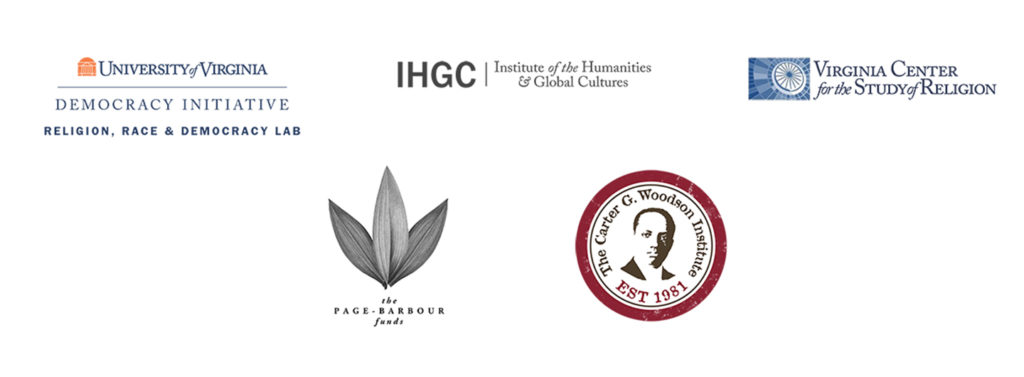Contemporary African societies and polities are sites of profound paradoxes and contradictions: described as both “postcolonial” and “neocolonial,” both “inescapably modern” and as bastions of “anti-modern tradition,” both “deeply religious” and “exceeding or challenging definitions of ‘religious’,” both profoundly “democratic” and “anti-democratic.” The papers in this panel all demonstrate how thinking from African contexts and with African concepts, categories, and case studies can provide a rethinking of political and intellectual possibilities that illuminate, critique, and even resolve current paradoxes, conflicts, and aporia within Western ideals, practices, and institutions.
Part of the virtual conference, Religion and Democracy on the African Continent: Colonial Legacies and Postcolonial Possibilities.
Format
Each panelist will deliver a 10-minute presentation, followed by a 5-minute Q&A. There will be a 10-minute break halfway through the session. Click titles below to read the abstracts.
Hadiza Abdulrahman, “Politics, Power and Qur’anic Schooling in Northern Nigeria: Contesting Legitimacies and Contested Knowledges”
Elias Bongmba, “Political and Public Theology in Africa Today: Targeted Reflections”
Ousseina Alidou, “Neoliberal Democracy, COVID-19 Pandemic and Muslim Ethics of Care: Hausa Poetics of Compassion and Resistance”
Abdulkader Tayob, “Thinking of a Moral Economy of Islam with Ibn Khaldun”
Jacob Olupona, “Structural Oversight in Democratic Process: Indigenous Tradition in African Nation”
Chair: Cynthia Hoehler-Fatton
Speakers
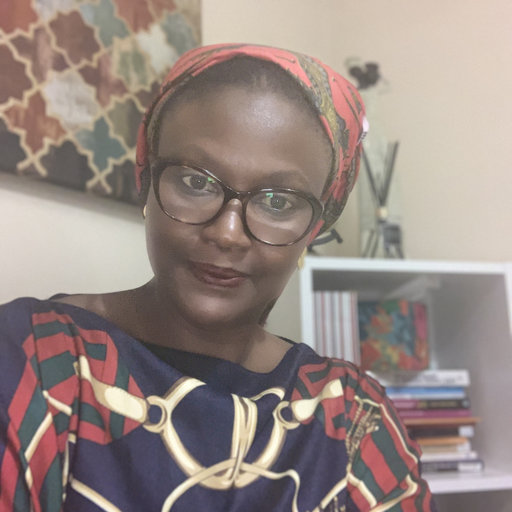
Hadiza Abdulrahman
Hadiza Abdulrahman (PhD in Education, University of Lincoln) is Senior Lecturer in Inclusive Education at Bishop Grosseteste University in the United Kingdom. She researches the Almajiranci system of education in northern Nigeria. Her general interest is in the ways that colonial(ism/ity) shapes the narratives regarding education in postcolonial societies; and especially how it affects who we are as people and how we come to ‘know’ the things we know. She also co-owns a nursery/primary school in Minna, Niger State.
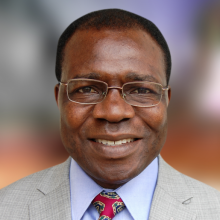
Elias Bongmba
Elias Kifon Bongmba is the Harry & Hazel Chavanne Chair in Christian Theology and Professor and Chair of Religion at Rice University. Professor Bongmba combines his teaching of African religions and his research in theology and philosophy of religion working with African philosophical ideas and Continental philosophy. He is author of four books, including, African Witchcraft and Otherness: A Philosophical and Theological Critique of Intersubjective Relations (SUNY Press, 2001), The Dialectics of Transformation in Africa (Palgrave Macmillian, 2006), which won the 2007 Franz Fanon Prize for outstanding work in Caribbean Thought, Facing a Pandemic: The African Church and the Crisis of AIDS (Baylor University Press, 2007), and Witchcraft as Social Diagnosis: Traditional Ghanaian Beliefs and Global Health (Lexington Books, 2017). Bongmba is also the editor of The Wiley Blackwell Companion to African Religions, (Malden, Mass: Wile Blackwell, 2012) and The Rutledge Companion to Christianity in Africa, (New York: Routledge, 2015). He is also Co-Editor of Living on the Edge: Essays in Honour of Steve de Gruchy Activist & Theologian, eds. James R. Cochrane, Elias Bongmba, Isabel Phiri, Des van der Water. (Pietermaritzburg, South Africa: Cluster Publications, 2012).
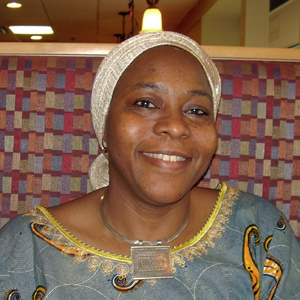
Ousseina Alidou
Ousseina Alidou is Professor of African Languages and Literatures in the Department of African, Middle Eastern and South Asian Languages and Literatures and the Graduate Program in Comparative Literature at Rutgers University. She is a theoretical linguist whose research focuses mainly on the study of women’s orality and literacy practices in African Muslim societies; African Muslim women’s agency and gender justice; African women’s literatures; gendered discourses of identity and the politics of cultural production in African Muslim societies. She has authored and co-edited numerous books, including, Writing through the Visual and Virtual: Inscribing Language, Literature and in Francophone Africa and Culture in Africa and the Caribbean, co-edited with Renée Larrier (Lexington Books, 2015), Muslim Women in Postcolonial Kenya: Representation, Leadership and Social Change (University of Wisconsin Press, 2013), and Engaging Modernity: Muslim Women and the Politics of Agency in Postcolonial Niger (University of Wisconsin Press, 2005) which was the Runner-up, Aidoo-Snyder Book Prize, Women’s Caucus of the African Studies Association, 2007, and more. She is currently working on a project called Gender, Islam and Popular Culture in the Sahel.
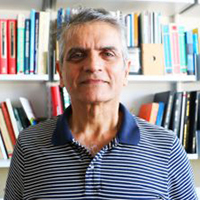
Abdulkader Tayob
Abdulkader Tayob is Professor of Islamic Studies at the University of Cape Town, and holds a National Research Foundation Chair in Islam, African Publics and Religious Values. He obtained his doctoral degree in 1989 from Temple University in the United States of America. He has worked and published on Islam in South Africa, Africa, the history of religions, and on the discourses of contemporary Islam. His recent books have brought attention to the modern Intellectual discourse of Islam, Muslim schooling, and Islam and Public life in Africa. His current projects focus on Religious Studies and Islamic intellectual history, on religious education in South Africa, and on religion and ethics in societies and religious traditions.
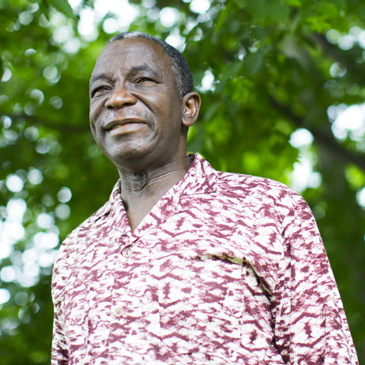
Jacob Olupona
Jacob K. Olupona is Professor of African Religious Traditions, Harvard Divinity School and Professor of African and African American Studies in the Faculty of Arts and Sciences. He studied at the University of Nigeria, Nsukka and Boston University where he received his PhD in Comparative Religion in 1983. He is currently working on a new ground-breaking study of the explosive growth of evangelicalism across all branches of Christianity, expanding the current discourse that is largely focused on Pentecostalism by identifying its affect on and place in the larger context of Nigerian Christianity and society. Olupona has authored or edited numerous books, including Kingship, Religion and Rituals in a Nigerian Community: A Phenomenological Study of Ondo Yoruba Festivals and The City of 201 Gods: Ile-Ife in Time Space and the imagination, in which he examines the modern urban mixing of ritual, royalty, gender, class, and power, and how the structure, content, and meaning of religious beliefs and practices permeate daily life. His most recent edited volume, Ifa Divination: Knowledge, Power, and Performance analyzes the famous tradition of Ifa divination from perspectives as varied as theology, art and aesthetics, philosophy, and cultural studies. Olupona has received prestigious grants from the Guggenheim Foundation, the American Philosophical Society, the Ford Foundation, the Davis Humanities Institute, the Rockefeller Foundation, the Wenner-Gren Foundation, and the Getty Foundation. He has served on the editorial boards of three influential journals and was the president of the African Association for the Study of Religion. Olupona has received an honorary doctorate in divinity from the University of Edinburgh in Scotland and an honorary Doctor of Letters degree from the Obafemi Awolowo University in Ile-Ife and the University of Abuja, Nigeria. In 2008 he was awarded the highest distinction the Nigerian government bestows on civilians, the Nigerian National Order of Merit, and he was inducted into the Nigerian Academy of Letters in 2015. In October 2015, he was honored with the Reimar Lust Award by the Alexander von Humboldt Foundation, Germany.
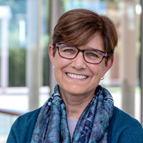
Cynthia Hoehler-Fatton
My teaching and scholarship concentrate on the intersections between African indigenous religions and Christianity and Islam over the last hundred years. I am fascinated by religious change, and my research—whether it be on gender in East African independent churches, the revitalization of “ATR” (African Traditional Religion) in post-apartheid South Africa, or my current work on the introduction of Islam into Western Kenya—reflects my ongoing interest in the dynamism of religion. For several years, I served as Associate Director of the Carter G. Woodson Institute, where I directed the undergraduate interdisciplinary program in African-American and African Studies.
Co-sponsored by
